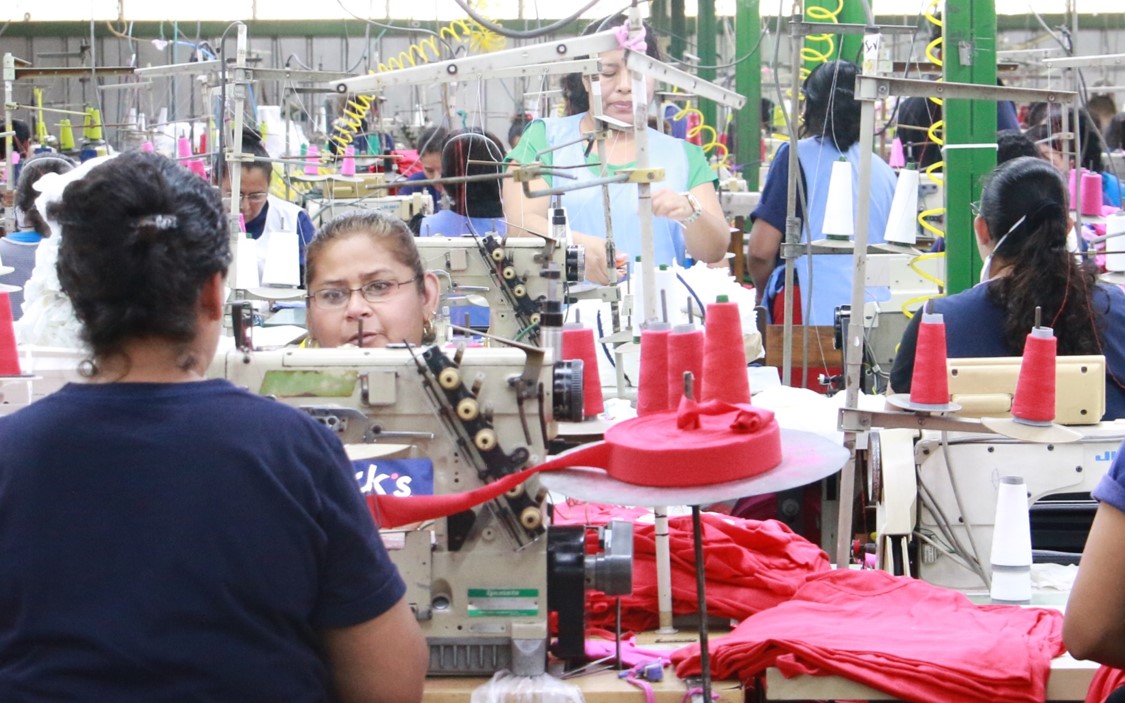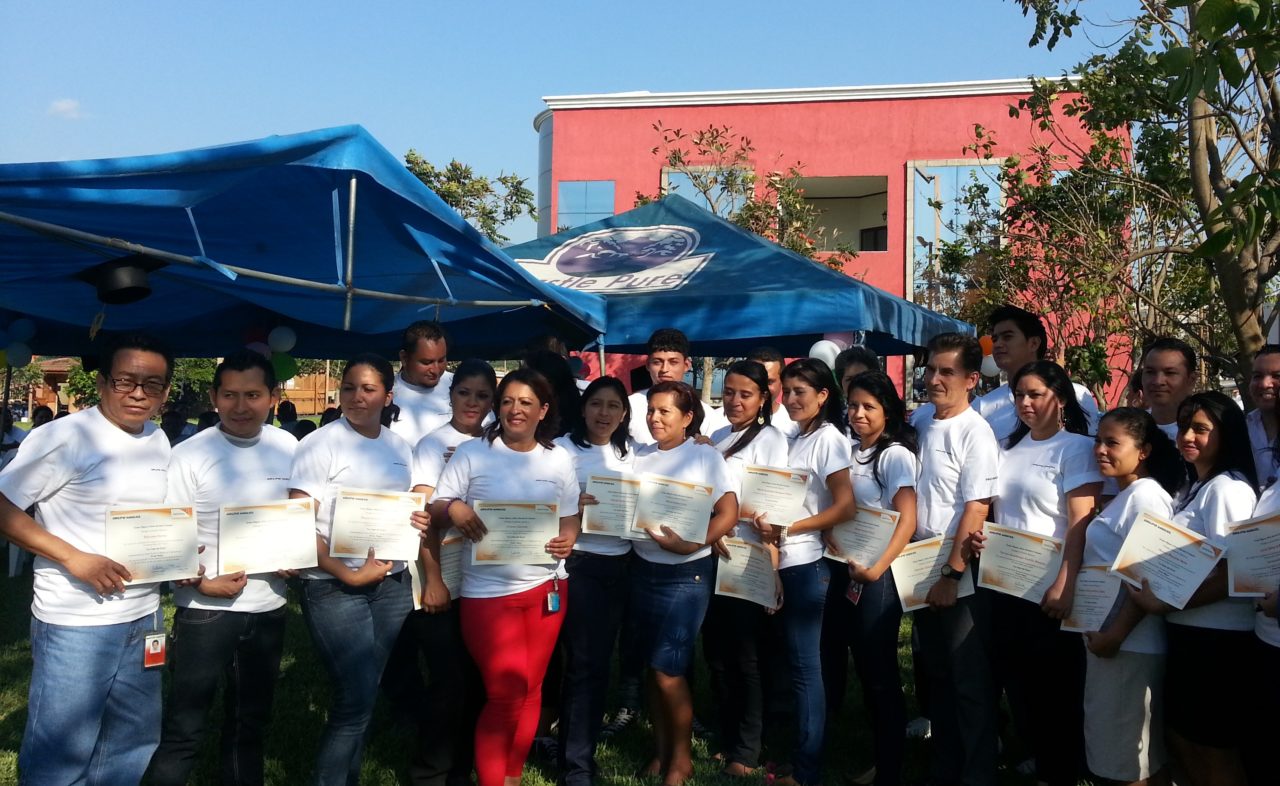In 2011, Walmart and the Walmart Foundation launched the Women in Factories Training Program, a five-year initiative to train 60,000 people in 150 factories and processing facilities with high percentages of women employees. In 2013, the Walmart Foundation selected World Vision to participate in its Women in Factories (WIF) program, which is part of the company’s global Women’s Economic Empowerment Initiative (WEEI).
Because we deliberately integrate opportunities for women and girls into every aspect of our work, we were uniquely positioned to partner alongside Walmart in their Women’s Economic Empowerment Initiative and WIF program. We know that investments that lift up women and girls lead to healthier families, communities and nations across the globe.

Together through WIF, the Walmart Foundation and World Vision provided training to 15,701 women and 9,898 men in factories in Honduras and El Salvador, helping them build skills in personal finance, nutrition, and speaking and negotiating in the workplace. A total of 53 factories from different sectors completed the training process as part of Walmart’s commitment to promote flourishing work environments for factory workers around the world.
Goal and Outcomes
The goal of the partnership was to increase the productivity and self-esteem of factory workers, especially women, and positively impact factory operations.
According to a Tufts University study, the project achieved the following metrics:
- Turnover: Reduced from 14.6% per month, to 2.6% per month
- Efficiency Rate: Increased 29%
- Production Target: Increased by 15%, probability of reaching new target increased 11%
- Health: Improved mental health, life satisfaction, and healthy behaviors (boiling water before drinking)
- Empowerment: Reduced dehumanizing and abusive behaviors at work and in the home
Transforming Lives for the Better
Before completing Foundational and Advanced training, Anabelith Guevara worked at Confecciones Monzine in Honduras in the sewing department. Anabelith did so well through all the training courses that she was picked to complete the Trainer of Trainers (TOT) course. “This opportunity as facilitator has opened my mind to dream that I can improve, it has woken up in me new life expectations. I feel motivated to work with other people and I have seen the support of my colleagues in this process, collaborating with me and letting me develop as their facilitator,” Anabelith said.
The Women in Factories program has provided a way for people to transform their lives and those of their families. Women and men have been trained on assertive communication, self-esteem, gender, and health. This is expected to benefit their children as they educate them and treat them better. In Central America, men have a unique influence on cultural change at home. 85% of the men who completed the Foundational Training said that they experienced significant changes in their mindset on the roles of women in society, the workplace, and in the family.
Participants better understood their role in society, regardless of their sex, and are more aware of gender equality and their rights and responsibilities as citizens. They are more committed to abandoning stereotypes and providing equal opportunities for all. Women and men are committed to balancing gender roles and responsibilities in future generations.
This program has indirectly benefitted 95,000 people, of whom 66 percent are children, adolescents and young people, in El Salvador and Honduras. 90 percent of the people who participated in the training chose to share the training with their families and neighbors.
As women thrive in all areas of life, their success translates to the marketplace, ensuring a stronger, more productive workforce for the entire manufacturing sector.

